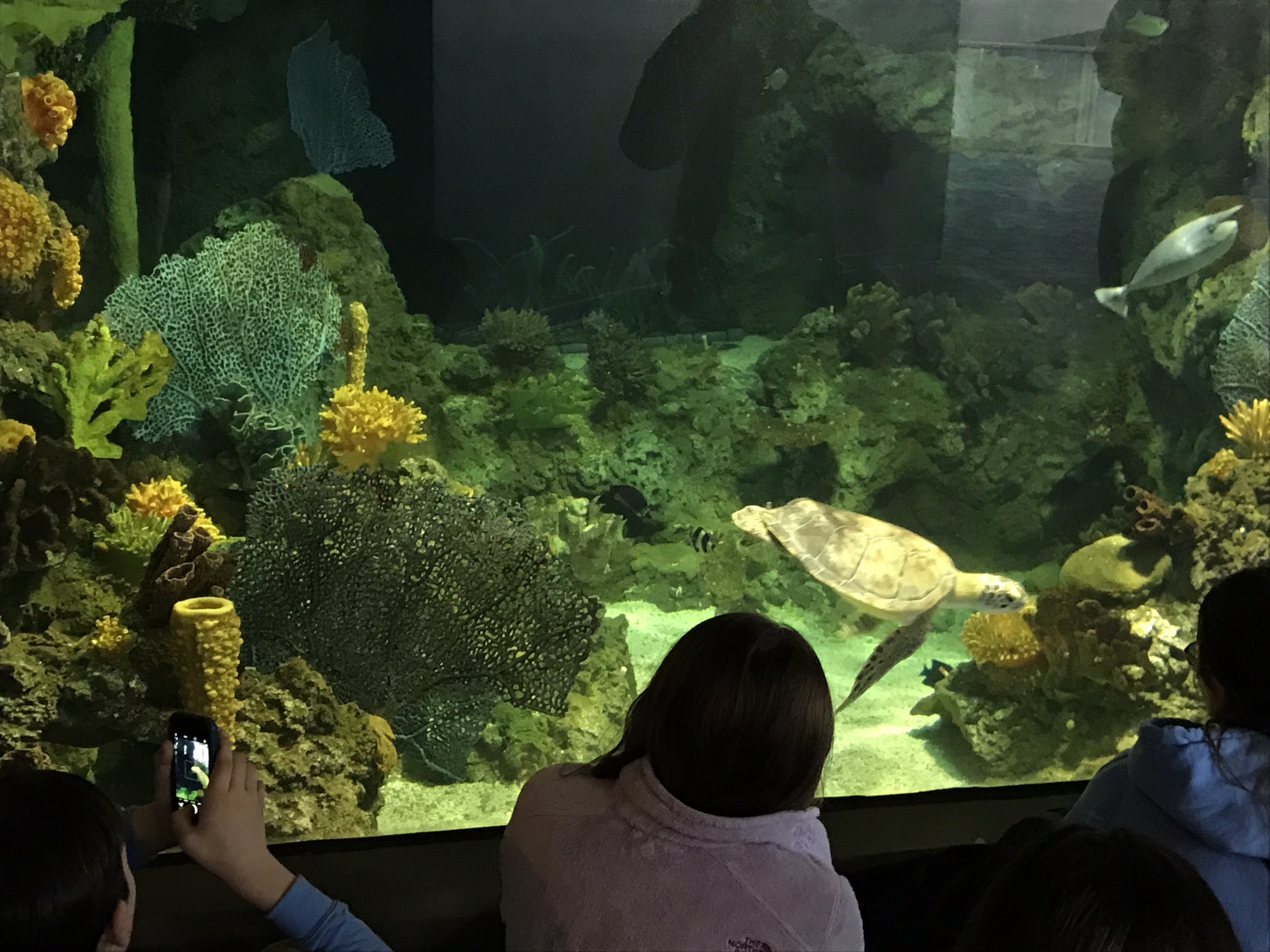
Hello to all from the north as we brace ourselves for what is hopefully our last blizzard of the season! I am spending my internship semester (and likely beyond, as I have been officially hired on as an education specialist) with the Pittsburgh Zoo & PPG Aquarium to develop informal environmental education programming for middle and high school students.
The Pittsburgh Zoo & PPG Aquarium (PZA) is a nonprofit zoo dedicated to research, conservation, and educational outreach. PZA was one of the first zoos in the world to outfit animal exhibits with realistic habitats and is one of only seven institutions worldwide to achieve certification for the treatment of their animals through the American Humane Conservation program. The aquarium also participates in highly successful national programs for sand shark and sea turtle rehabilitation.

I am mostly working on developing day lessons and activities for KidScience, a 2-year program in which middle schoolers learn to design and conduct their own independent research project while completing lessons and activities focused on wildlife conservation, animal handling and behavior, topics in global environmental problems, and animal enrichment. I am also assisting with course development for Zoo U, a rotating suite of themed informal semester-long classes for high school students–this spring, I am mostly working developing our new rodents class.
So far this semester, I have led a short lesson on the evolutionary history of rodents for Zoo U and longer, in-depth lessons on ecological mapping, realities of field work, and ecological engineers for KidScience. I am also working on developing a lesson on ecological niches of different rodent species for Zoo U and a bioblitzing activity for KidScience that will teach my middle school students the importance of biodiversity in the context of climate change and habitat degradation, as well as how to use iNaturalist.

All of us at KidScience are looking forward to our summer session, in which our students will finally conduct their independent research projects. We will also be spending a week camping and introducing our second-year students to field work at the International Conservation Center (ICC) in the beautiful Laurel Highlands of southwestern PA. The ICC is a rural preserve owned by the zoo and dedicated to the breeding and study of endangered species such as our African elephants.